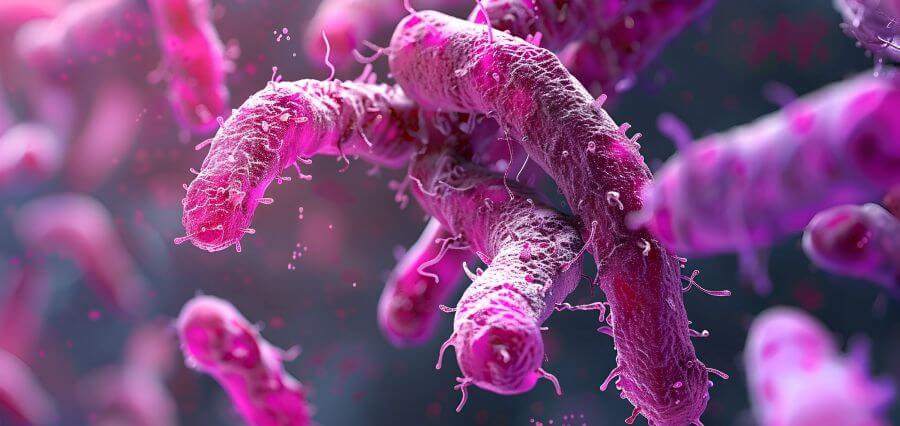Minds and Machines
In the ever-evolving field of biotech innovation, a powerful partnership is unfolding between human intellect and advanced machines. This collaboration, driven by practical needs and fueled by mutual benefits, is reshaping the landscape of scientific progress. In the complex world of biotechnology, the interplay between human minds and cutting-edge machines is proving to be a driving force, propelling us towards unprecedented breakthroughs.
Let’s embark on a journey exploring the dynamic collaboration between human intellect and advanced machines in shaping biotech innovation!
Human Expertise—The Driving Force in Biotech
Biotechnological breakthroughs are rooted in the expertise of human scientists. Understanding biological systems, molecular structures, and intricate cellular processes requires the nuanced knowledge and creative problem-solving abilities inherent in the human mind. The complexity of biological entities demands a level of comprehension that only human intelligence can provide.
Researchers and biotechnologists, committed to solving the mysteries of life, embark on a journey to expand scientific knowledge. Their expertise acts as a guiding light, steering the industry towards solutions for critical challenges, such as developing new therapies and addressing environmental concerns.
The Rise of Machines—A Practical Ally
As the demands on biotechnology grow, integrating machines into the research and development process has become essential. Machines, driven by artificial intelligence (AI) and machine learning algorithms, bring unique capabilities to the table. Their ability to process vast amounts of data, identify patterns, and make predictions at incredible speeds complements human researchers’ strengths.
Machines play a crucial role in data analysis, especially with the explosion of biological data from various omics technologies. They excel at sifting through extensive datasets, extracting relevant information, and providing valuable insights that shape the direction of experiments. In drug discovery, machine learning algorithms analyze molecular structures, accelerating the research and development pipeline and bringing life-saving treatments to patients more efficiently.
Automating Laboratory Workflows
Machines are also being integrated into laboratory workflows to automate repetitive tasks. Robotic systems equipped with precision instruments conduct experiments with a level of accuracy and reproducibility that surpasses human capabilities. This not only speeds up the research process but also reduces the likelihood of human error, significant for reliable experimental results.
The integration of automation allows researchers to focus on tasks that require creative thinking and problem-solving. By offloading routine laboratory work to machines, scientists can dedicate more time to designing experiments, interpreting results, and formulating innovative hypotheses.
Challenges and Ethical Considerations
While the collaboration between humans and machines holds promise, it comes with challenges. Ethical considerations surrounding the use of AI in biotechnology, including issues related to data privacy, bias in algorithms, and responsible technology use, must be carefully addressed.
The rapid pace of technological advancement demands a commitment to education and upskilling within the biotech workforce. Researchers and professionals must stay updated on the latest developments in AI and machine learning to use these tools effectively and responsibly.
The Future—A Collaborative Ecosystem
Looking ahead, the future of biotech innovation is likely to be defined by a collaborative ecosystem where human intelligence and machine capabilities seamlessly work together. AI integration is expected to extend beyond the laboratory, influencing decision-making processes across the biotech industry, from research and development to regulatory affairs.
In drug development, AI-driven simulations may become instrumental in predicting the safety and efficacy of new compounds. Regulatory agencies may leverage machine learning algorithms to analyze vast amounts of data, streamlining the approval process for new therapies. The possibilities are extensive, and as the partnership between humans and machines matures, the biotech landscape will undergo transformative changes.
A Holistic Approach—Balancing Technology and Human Touch
In the pursuit of biotech innovation, maintaining a holistic approach is essential. While machines offer unparalleled efficiency and data processing capabilities, the human touch remains irreplaceable. The intuitive understanding, creativity, and ethical judgment that humans bring to the table are crucial elements in ensuring that technological advancements align with societal values and ethical standards.
Conclusion
In the realm of biotech innovation, the collaboration between human minds and machines is reshaping the landscape of scientific discovery. Human expertise provides the essential foundation, guiding the industry with a deep understanding of biological systems. Simultaneously, machines, with their computational prowess and efficiency, propel the field forward, accelerating the pace of discovery and revolutionizing traditional approaches.
Standing at the intersection of human ingenuity and technological advancement, the harmonious collaboration between humans and machines, maintaining a holistic approach, holds the key to unlocking the next wave of biotechnological breakthroughs. With ethical considerations at the forefront and a commitment to ongoing education, the biotech industry is poised to harness the full potential of this collaborative relationship, ushering in a new era of innovation and progress.





